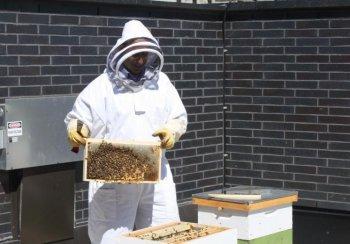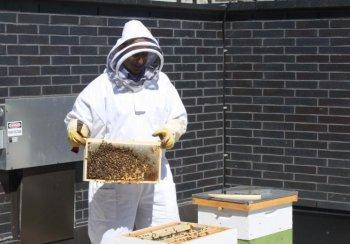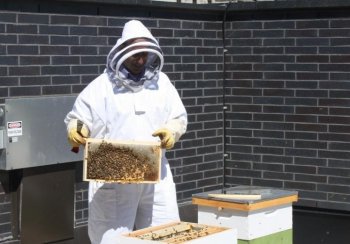Big Buzz Around Urban Beekeeping
The Canadian Opera House has become the latest to join the growing trend of urban beekeeping.

Beekeeper Fred Davis holds a frame from one of the hives that were recently installed on the roof of the Canadian Opera Company's home at Toronto's Four Seasons Centre for the Performing Arts. Canadian Opera Company

Joan Delaney
Senior Editor, Canadian Edition
|Updated:





